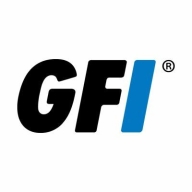


Meraki MX and KerioControl are security and network management solutions competing in the cloud and on-premises network category. Meraki MX seems to have the upper hand with its centralized cloud management and automation features, making it ideal for larger scale deployments.
Features: Meraki MX excels in cloud management with remote configuration and management capabilities, robust SD-WAN features, and simplified content filtering. It also offers traffic shaping and intrusion detection with automation. KerioControl provides detailed security with features such as VPN, intrusion prevention, and easy content filtering. It is designed for small to midsize businesses and supports efficient resource management.
Room for Improvement: Meraki MX users express the need for improved flexibility in setup, particularly for client VPN and load balancing, as well as more reporting and logging options. KerioControl can enhance its VPN features and improve the integration of advanced security options. Refining content filtering and reporting may further benefit its users.
Ease of Deployment and Customer Service: Meraki MX supports both cloud and on-premises deployment, focusing on cloud management and garnering praise for quick and knowledgeable customer service. KerioControl, mainly supporting on-premises deployments, suits environments without extensive cloud integrations. Both offer high standards in customer support, but Meraki's flexible technical service is noted for global reach.
Pricing and ROI: Meraki MX is considered expensive, justified by its cloud-managed features and support, facilitating savings in IT man-hours with a significant return on investment. KerioControl is more affordable, with predictable licensing and offers robust security features appealing to small to midsize businesses. Meraki's higher costs contrast with KerioControl's budget-friendly model, targeting different market segments.
Clients are now comfortable and not wasting productive hours on IT support.
We have experienced a positive return on investment by utilizing Fortinet's products.
There's definitely an ROI. Having a centralized way of managing and applying policies across the entire organization always helps.
He explained that it required a command line configuration, as it couldn't be done through the graphical user interface.
I would rate their support for FortiGate a nine out of ten.
They offer very accurate solutions.
I have never needed to contact customer support as the product is easy to use.
They scale up really well from smaller models like the FortiGate 40 and 50 to bigger sites with the FortiGate 100 for more throughput - up to enterprise datacenters.
The variation comes in terms of the interfaces and throughputs, but from a security perspective, you get the same benefit, irrespective of whether you have an entry-level unit or an enterprise.
There are many options available, and we can choose the size of the box based on our requirements.
KerioControl has met some of the network infrastructure needs yet could improve in terms of scalability.
We have Juniper solutions, and I would say the Juniper solutions can scale better, however, this solution is still very scalable.
There are no bugs or glitches, and it doesn't crash or freeze.
Improper handling of these can lead to a memory surge, a well-known bug that can cause the entire system to freeze.
It is less stable than Palo Alto Networks and Check Point firewalls because there are lots of bugs in the latest firmware.
If I have put 10 GBPS of throughput on a firewall and I enable all of these features available, such as IPS or UTM functionalities, the throughput comes down to 1 GBPS.
By providing an integrated solution, users would have access to all features and functionalities within a single window, eliminating the need to navigate through multiple windows.
Investing in a solution that can accommodate such growth would be more cost-effective than repeatedly purchasing new hardware.
Data is the only path, so optimization is essential.
Secure SD-WAN is free of charge.
The most expensive part is the renewal of the license subscription.
FortiGate is priced lower than Palo Alto.
The price for the product is rated as ten out of ten.
In terms of pricing, I would say it is not the cheapest, but it was comparable to the others.
It is neither expensive nor cheap.
It's easy to monitor the end-to-end network through the firewall.
The firewall, IPS, and VPN functions are the most valuable features.
FortiGate provides solid protection against viruses, malware, and other threats.
The most valuable features include geo-tagging, which blocks all other IPs except for the specified accounts, and web filtering.
We understand that Cisco solutions are very reliable, and we really like the simple management.
Since cybersecurity is my main concern, this type of miscommunication relating to vulnerability blocking is crucial.



Fortinet FortiGate offers comprehensive network security and firewall protection across multiple locations. It effectively manages data traffic and secures environments with features like VPN, intrusion prevention, and UTM controls.
Organizations rely on Fortinet FortiGate for its robust integration with advanced security policies, ensuring significant protection for enterprises, cloud environments, and educational sectors. It facilitates network segmentation, application-level security, and authentication management, securing communication within and between locations such as branches and data centers. Its efficient SD-WAN and UTM features enable streamlined data management and enhanced threat protection capabilities. Users appreciate its centralized management, facilitating seamless operations across diverse environments.
What are the key features of Fortinet FortiGate?
What benefits should users expect from Fortinet FortiGate?
Fortinet FortiGate is crucial in sectors like education, offering robust networks for secure data flow between campuses and facilitating remote learning. In enterprise environments, it allows efficient management of application traffic and security across multiple branches, while in the cloud, it seamlessly integrates with diverse platforms to enhance security infrastructure.
Kerio Control is a popular security product for small and medium-sized businesses. It is a next-generation firewall that provides unified threat management without complexity. Kerio Control provides advanced anti-virus protection and industry-leading web and content application filtering, and has a secure VPN.
With Kerio Control you can:
Kerio Control Features
Some of Kerio Control’s most valuable features include:
High availability, deployment flexibility, deep packet inspection, advanced routing, usage reporting, quick administering, intrusion detection and prevention (IPS), gateway anti-virus, VPN, web and content application filtering, and centralized administration with MyKerio.
Kerio Control Benefits
Reviews from Real Users
Here is some feedback from some of our users who are currently using the solution:
PeerSpot user Brian C., Senior Technology Specialist, VP at Unified Technology Solutions, writes "It is very comprehensive and simple. It has all the active protections. It's updated. We love that you can set how often it is updated so you can work on what is right for you. A large company with a lot of bandwidth can update the virus definitions and security definitions hourly, if they want. A smaller site that's remote, where maybe updating the definitions will eat into the bandwidth, we can schedule those more to go later at night. It's very flexible and works for us in all types of situations. This is great because then we don't have to learn seven different products to be able to work with seven different scenarios."
Andy D., IT Manager at Flare Technologies, praises how easy it is to use and says, "One thing we use quite a lot, as well, is the DHCP Server, because we do a lot of work where all our devices need to have static IP addresses. Rather than going around and configuring every box, we do it all through DHCP reservations. It's easier. We've got a record of it. We can manipulate it if we need to change something or change some hardware. It's all easy. Even guys who are not used to using it can pick it up quite quickly."
Cisco Meraki MX appliances are next-generation firewalls with all the advanced security services needed for today’s IT security. The appliances are ideal for organizations considering a unified threat management (UTM) solution for branch offices, data centers, distributed sites, or campuses. Since Meraki MX is 100% cloud-managed, installation and remote management are simple and zero-touch.
Meraki MX’s hardware and virtual appliances are configurable in Microsoft Azure, Amazon Web Services (AWS), and Google Cloud Platform, and private cloud support is offered through Cisco NFVIS and Alibaba Cloud.
Organizations of all sizes and across all industries rely on Meraki MX to deliver secure connectivity to hub locations or multi-cloud environments, as well as application quality of experience (QoE) through advanced analytics with machine learning.
Cisco Meraki’s advanced QoE analytics offers:
Cisco Meraki’s SD-WAN offers:
The Meraki MX’s SD-WAN is unique in that it can be easily extended to deliver optimized access to resources in public and private cloud environments with virtual MX appliances. Its SD-WAN lowers operational costs and improves the performance of remotely-accessed resources. Users can ensure the availability of the apps and services their employees use most through dynamic path selection, policy-based routing, support for application-layer profiles, and VPN.
Meraki MX offers industry-leading cloud management that has template-based settings which can scale easily from small deployments to tens of thousands of devices. It features an intuitive web-based dashboard for managing mobile devices, united firewalls, switching, and wireless LAN. Users can also benefit from role-based administration, configurable email alerts for a variety of important events, and easily auditable change logs. Meraki MX is capable of producing summary reports with device, user, and application details archived in the cloud.
Meraki MX Key Features
MX has a robust suite of network services in an all-in-one device, which saves you money by eliminating the need for multiple appliances. These services include:
Reviews from Real Users
Meraki MX stands out among its competitors for a number of reasons. Two major ones are its easy management and its ability to be accessed remotely. Below is some feedback from PeerSpot users who are currently using Meraki MX as their firewall security solution.
Craig B., a central services engineer at Liberty Technology, writes, “The web console for managing everything keeps everything on Meraki and keeps us from going somewhere else. It is why I think a lot of people like Meraki. Comparing it to SonicWall or even a different Cisco firewall, like traditional ASAs, managing Meraki is a thousand times easier because of fluidity. You don't have to rebuild a table just to change one rule. It's much more readable for a human.”
Edgardo C., an IT director, notes,”By using the VPN, we can connect remotely. We have two offices, and we could connect them through the VPN. We could establish a network between two sites, and that has improved and increased communication and productivity. Our remote site is able to access the server remotely.”
We monitor all Unified Threat Management (UTM) reviews to prevent fraudulent reviews and keep review quality high. We do not post reviews by company employees or direct competitors. We validate each review for authenticity via cross-reference with LinkedIn, and personal follow-up with the reviewer when necessary.